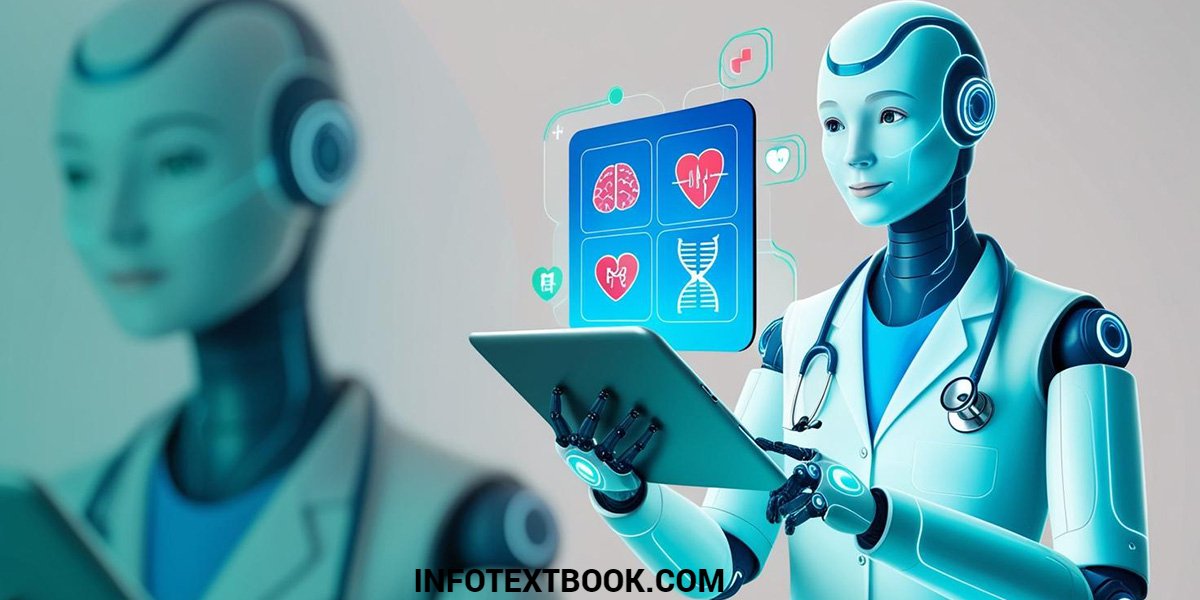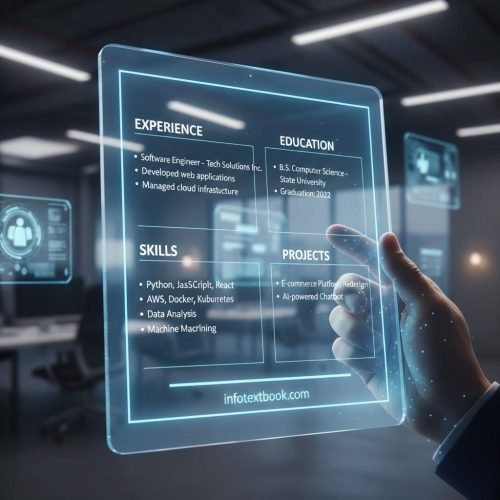Table of Contents
ToggleAI in Health Care Transforming Medicine, Patient Care & Innovation in 2025
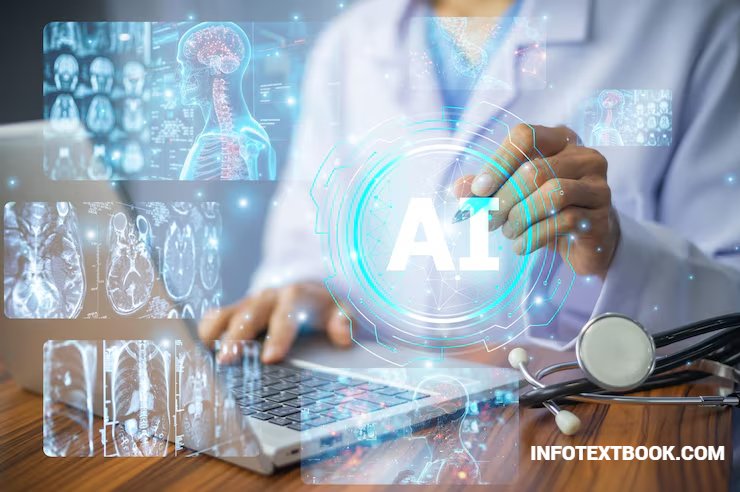
Introduction to AI in Health Care
Artificial Intelligence (AI) is revolutionizing the healthcare sector, offering innovative solutions that enhance patient outcomes, streamline medical processes, and reduce operational costs. AI in Health Care leverages advanced algorithms, machine learning, and data analytics to improve diagnosis, treatment, and hospital management. With rapid technological advancements, AI is no longer a futuristic concept it is actively transforming the way healthcare providers operate today.
Key Applications of AI in Medicine
AI is widely applied across medical fields, including diagnostics, radiology, and personalized medicine. Tools powered by AI can analyze complex medical data faster and more accurately than humans, helping detect diseases such as cancer, diabetes, and cardiovascular disorders at an early stage. For example, AI-driven imaging systems can identify anomalies in X-rays, MRIs, and CT scans with remarkable precision. Additionally, AI in Health Care is used to develop predictive models for patient risk assessment and to optimize treatment plans, ensuring better health outcomes.
Benefits of AI in Patient Care
One of the most significant advantages of AI in Health Care is improved patient care. AI-powered chatbots and virtual assistants provide 24/7 medical support, answer patient queries, and schedule appointments efficiently. Remote patient monitoring systems, enabled by AI, help track vital signs and alert healthcare providers to potential health issues before they escalate. Furthermore, AI supports personalized treatment by analyzing patient history and genetic data, leading to more precise and effective therapies.
AI in Healthcare Research and Innovation
AI is accelerating medical research and innovation. Drug discovery, for instance, has become faster and more cost-effective due to AI algorithms that can predict molecular behavior and identify promising drug candidates. AI also aids in analyzing large datasets from clinical trials, enabling researchers to uncover patterns and insights that were previously impossible to detect manually. The integration of AI in Health Care research ensures continuous innovation, pushing the boundaries of modern medicine.
Challenges and Ethical Considerations
Despite its benefits, AI in Health Care faces several challenges. Data privacy and security are major concerns, as AI systems require access to sensitive patient information. Additionally, there is a need to address biases in AI algorithms that may affect the fairness of medical decisions. Ethical considerations, regulatory approvals, and the need for healthcare professionals to adapt to AI-driven workflows are critical for successful implementation.
Future of AI in Health Care
The future of AI in Health Care is promising, with ongoing advancements in deep learning, robotics, and predictive analytics. Hospitals and clinics worldwide are adopting AI technologies to enhance operational efficiency, improve patient outcomes, and reduce costs. With proper regulation and ethical use, AI is poised to become an indispensable tool in the global healthcare ecosystem.
Introduction to AI in Health Care
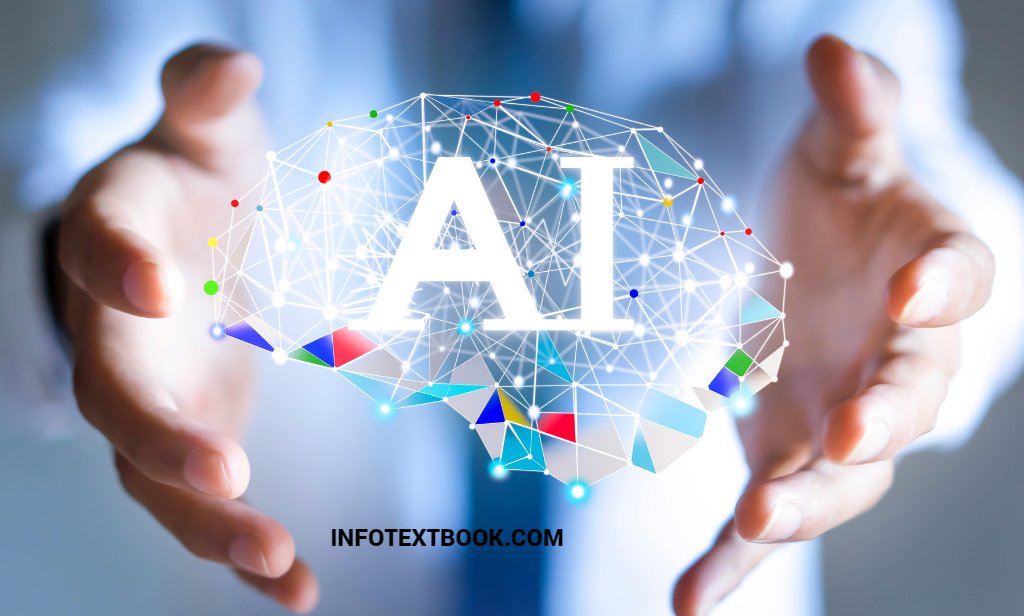
Introduction to AI in Health Care
Artificial Intelligence (AI) is rapidly transforming the healthcare sector, offering innovative solutions that improve patient care, streamline medical processes, and enhance overall efficiency. AI in Health Care refers to the use of intelligent algorithms, machine learning models, and advanced data analytics to assist healthcare professionals in diagnosis, treatment, and management of medical services. Today, AI is no longer just a futuristic concept; it is an essential part of modern medicine, supporting both clinical and operational decisions.
One of the most impactful applications of AI in Health Care is in diagnostics. AI powered tools can analyze vast amounts of medical data such as imaging scans, laboratory results, and patient histories to detect abnormalities with high accuracy. For instance, AI algorithms can identify early signs of diseases like cancer, cardiovascular conditions, and neurological disorders, often faster than traditional methods. This early detection plays a crucial role in improving patient outcomes and saving lives.
In addition to diagnostics, AI in Health Care is revolutionizing patient care through personalized medicine. By analyzing genetic information, lifestyle factors, and medical history, AI can recommend customized treatment plans that are more effective than one-size-fits-all approaches. Virtual health assistants and AI-powered chatbots also provide round-the-clock support, answering patient queries, scheduling appointments, and monitoring chronic conditions remotely. These technologies ensure that patients receive timely care while reducing the workload on healthcare providers.
Another critical area where AI is making a difference is research and drug development. AI accelerates the discovery of new drugs by predicting molecular interactions, analyzing clinical trial data, and identifying potential candidates for treatment. This approach significantly reduces the time and cost involved in bringing new medications to market. Advanced AI, often referred to as AAI, is being integrated into healthcare systems worldwide, driving innovation and creating smarter, data driven solutions.
Despite the many advantages, implementing AI in Health Care also comes with challenges, including data privacy concerns, algorithm biases, and the need for regulatory compliance. However, with responsible use, AI holds immense potential to reshape healthcare delivery, making it more efficient, precise, and patient centric
Key Applications of AI in Medicine
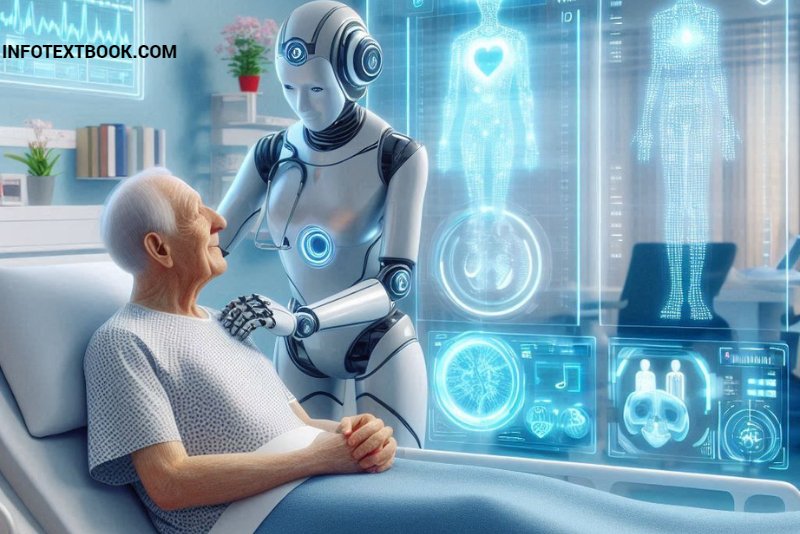
Key Applications of AI in Medicine
Artificial Intelligence has become one of the most powerful innovations in modern medicine, offering advanced tools that improve diagnosis, treatment, and patient management. The adoption of AI in Health Care is transforming traditional medical practices by making them faster, more precise, and cost-effective. From predictive analytics to robotics, AI-powered applications are revolutionizing the medical industry at every stage of patient care.
Diagnostic Accuracy and Early Detection
AI algorithms can analyze medical images such as X-rays, CT scans, and MRIs with remarkable accuracy. They help radiologists detect anomalies, including tumors, fractures, or cardiovascular conditions, at an early stage. For example, AI-driven imaging platforms can recognize subtle patterns in lung scans to detect cancer before it spreads, enabling timely treatment and improving survival rates.
Personalized Treatment Plans
One of the most significant applications of AI in Health Care is the development of personalized therapies. By analyzing patient history, genetic information, and real-time health data, AI systems create customized treatment plans tailored to individual needs. This ensures higher success rates and minimizes side effects, making healthcare more effective and patient-centric.
Drug Discovery and Development
The traditional process of developing new drugs is time-consuming and expensive. With the support of AAI and machine learning, researchers can now predict how molecules will interact, significantly reducing the time required for drug discovery. AI algorithms can also simulate clinical trials, identify promising compounds, and even suggest new applications for existing drugs, helping the medical industry respond quickly to emerging health challenges.
Virtual Assistants and Patient Monitoring
AI powered chatbots and virtual assistants are increasingly used to provide patients with 24/7 support. They can answer health-related queries, remind patients to take medication, and schedule appointments. In addition, wearable devices integrated with AI monitor vital signs such as heart rate, oxygen levels, and blood pressure, alerting doctors in case of irregularities. This continuous monitoring improves chronic disease management and enhances patient safety.
Robotics in Surgery
AI-driven robotic systems assist surgeons in performing minimally invasive procedures with precision and control. These robotic platforms reduce surgical risks, minimize recovery time, and improve patient outcomes. Hospitals around the world are adopting such technologies to provide safer and more efficient surgical care.
Benefits of AI in Patient Care

Benefits of AI in Patient Care
Artificial Intelligence has become a game-changer in the medical field, providing advanced solutions that enhance treatment, diagnosis, and overall patient experience. The adoption of AI in Health Care is not just about technology—it’s about transforming how patients interact with doctors, hospitals, and healthcare systems worldwide. By combining AAI (Applied Artificial Intelligence) with medical expertise, healthcare providers can offer faster, more accurate, and highly personalized care.
Early Diagnosis and Precision Treatment
One of the greatest benefits of AI in Health Care is its ability to detect diseases at an early stage. AI-powered diagnostic tools analyze medical images, blood reports, and patient histories with high accuracy, helping doctors make quicker and more reliable decisions. For instance, AI-driven imaging systems can identify early signs of cancer or heart disease, giving patients a better chance of recovery through timely treatment. Precision treatment, enabled by AI, ensures that therapies are tailored to the unique needs of each patient.
Continuous Monitoring and Patient Safety
AAI technologies such as wearable devices and smart monitoring systems have revolutionized patient care. These tools continuously track vital signs like heart rate, blood pressure, and oxygen levels, alerting doctors and patients about potential risks in real time. This not only improves patient safety but also reduces hospital readmissions. Remote monitoring has become especially valuable for elderly patients and those with chronic conditions, ensuring they receive constant medical attention without frequent hospital visits.
Enhanced Patient Experience and Support
AI in Health Care also plays a significant role in improving patient engagement. Virtual health assistants and AI-powered chatbots provide round-the-clock support by answering queries, scheduling appointments, and offering reminders for medication. This ensures that patients feel supported throughout their healthcare journey. Moreover, the use of AI reduces waiting times, streamlines hospital operations, and makes the overall experience more efficient and stress free.
AI in Healthcare Research and Innovation
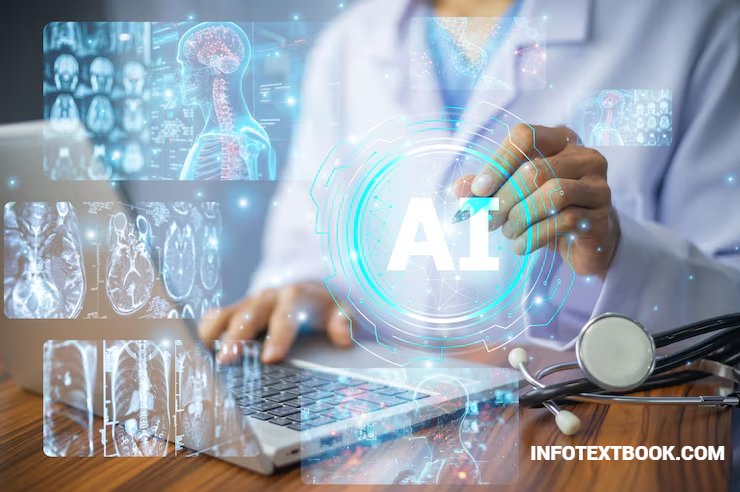
AI in Healthcare Research and Innovation
Artificial Intelligence (AI) is rapidly reshaping the way healthcare research and innovation are conducted worldwide. By leveraging big data, predictive analytics, and automation, AI in Health Care is accelerating the discovery of new drugs, improving clinical trial processes, and enabling breakthroughs in personalized medicine. Researchers now rely on intelligent systems to process complex datasets that would take humans years to analyze, making innovation faster, more precise, and cost-effective.
One of the most impactful areas is drug discovery and development. Traditional research methods are often slow and expensive, but AI algorithms can predict molecular interactions, identify promising compounds, and even repurpose existing drugs for new treatments. This not only saves time but also reduces the cost of bringing life-saving medicines to market. Similarly, AI is enhancing the efficiency of clinical trials by helping researchers identify the right candidates, monitor patient responses in real time, and analyze massive volumes of trial data.
In addition, AI in Health Care supports genomics and precision medicine. By analyzing genetic information alongside patient history, AI helps develop tailored treatment plans that target the root causes of disease rather than just symptoms. This approach is transforming how we think about cancer therapies, rare genetic conditions, and chronic diseases. The ability of AI to uncover hidden patterns in data is leading to more accurate diagnostics and personalized interventions.
Medical imaging research is another field benefitting from AI-driven innovation. Advanced image recognition systems can detect early signs of diseases like cancer or neurological disorders that human eyes might miss. This improves diagnostic accuracy and allows for early intervention, which is crucial in saving lives.
Despite these remarkable benefits, challenges remain. Data privacy, ethical use of patient information, and the need for unbiased algorithms are significant concerns. Collaboration between technology providers, healthcare institutions, and policymakers is essential to ensure AI-driven research is both effective and responsible.
The future looks promising as AAI (Applied Artificial Intelligence) continues to strengthen the bridge between research and practical healthcare applications. With constant advancements, AI in Health Care is set to play a central role in revolutionizing innovation, creating more effective treatments, and shaping the future of global medicine.
Challenges and Ethical Considerations
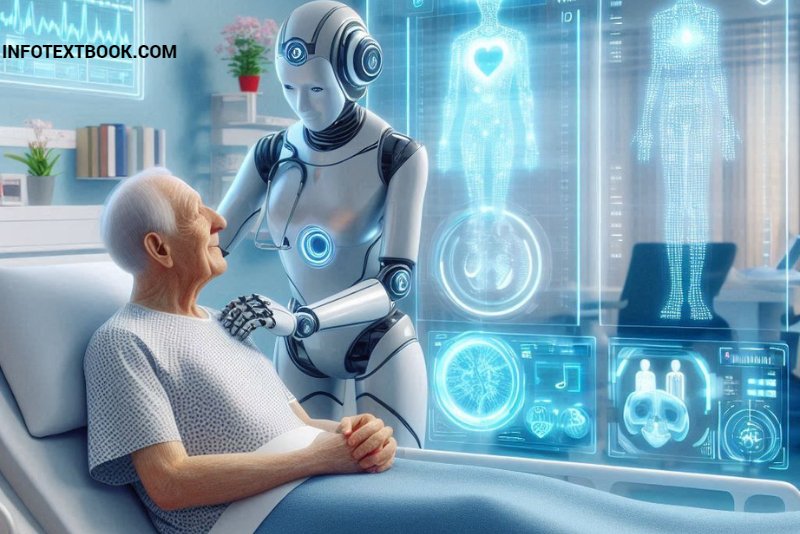
Challenges and Ethical Considerations of AI in Health Care
The adoption of AI in Health Care brings groundbreaking benefits, but it also introduces significant challenges and ethical dilemmas that must be carefully addressed. As artificial intelligence systems integrate deeper into the medical industry, healthcare providers, regulators, and patients must ensure that innovation aligns with ethical practices, patient safety, and global standards.
Data Privacy and Security
One of the foremost concerns with AI in Health Care is data privacy. AI systems rely heavily on vast amounts of patient data to make accurate predictions and diagnoses. However, storing and processing sensitive health information increases the risk of data breaches, hacking, and unauthorized access. Ensuring compliance with regulations such as HIPAA and GDPR is essential to protect patient confidentiality. Secure data encryption, transparent policies, and strict access controls are necessary to build trust between patients and healthcare providers.
Algorithmic Bias and Fairness
Artificial intelligence, including AAI models, often learns from existing datasets that may contain biases. If training data is incomplete or skewed, AI systems can produce unfair outcomes in patient care. For example, an algorithm trained mostly on data from one ethnic group may fail to provide accurate diagnoses for patients from different backgrounds. To mitigate this, diverse datasets and constant auditing of algorithms are required to ensure fairness and inclusivity.
Ethical Decision-Making
AI driven tools are increasingly assisting in life-altering decisions, such as treatment planning and prioritizing patients in emergency care. The ethical question arises: should machines have a say in decisions that could impact human life? While AAI can support doctors with predictive insights, the final authority should always rest with healthcare professionals. Striking the right balance between human expertise and machine intelligence is vital for ethical healthcare delivery.
Regulatory and Legal Challenges
The rapid growth of AI in Health Care often outpaces existing regulations. This creates uncertainty around accountability in cases of misdiagnosis or medical error caused by AI systems. Governments and international bodies must establish clear frameworks to define liability, safety standards, and ethical boundaries for AI use in medicine.
Professional Adaptation and Training
Healthcare professionals must adapt to new AI technologies. Without proper training, there is a risk of overdependence on machines or misuse of tools. Continuous education, transparency, and collaboration between medical staff and AI developers will ensure ethical and safe use of artificial intelligence.
Future of AI in Health Care
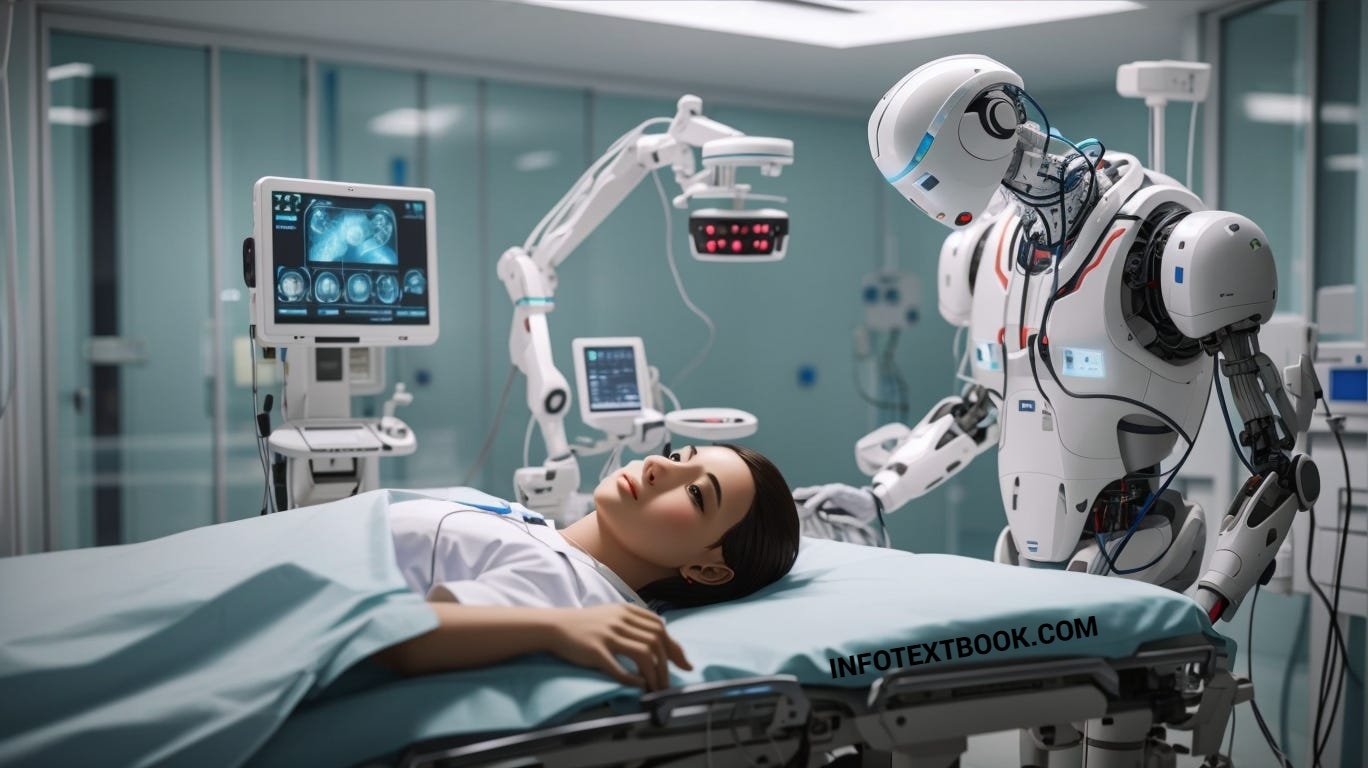
Future of AI in Health Care
The future of AI in Health Care is reshaping the way medicine is practiced, creating a smarter and more efficient system for patients and professionals alike. With the rapid integration of Artificial Intelligence technologies, hospitals, clinics, and research centers are witnessing a transformation in diagnosis, treatment, and patient management. Advanced systems powered by AAI are designed to process massive volumes of medical data, offering insights that were once unimaginable.
AI Driven Diagnosis and Personalized Treatment
In the coming years, AI tools will revolutionize diagnostic accuracy. By analyzing patient history, imaging scans, and lab reports, AI in Health Care will identify diseases at an early stage with higher precision than conventional methods. This will not only save lives but also reduce healthcare costs. AAI systems are also enabling personalized treatment plans tailored to genetic profiles, lifestyle, and real-time patient data, ensuring more effective therapies.
Enhancing Patient Care and Monitoring
AI driven wearable devices and remote monitoring solutions are expected to dominate the healthcare landscape. Patients will benefit from real-time updates on their vital signs, while doctors will be able to detect potential health risks before they become severe. With AAI, patient care is becoming proactive rather than reactive, helping healthcare providers deliver faster, safer, and more reliable care. Chatbots, virtual assistants, and AI-based telemedicine platforms will further enhance communication between patients and doctors, making healthcare accessible globally.
Innovation in Research and Drug Development
The future of medical research heavily depends on AI driven systems. By analyzing complex datasets, AAI is accelerating drug discovery, predicting molecular interactions, and reducing the time needed to bring new medicines to market. Clinical trials, often time-consuming and costly, will become more efficient with AI systems identifying ideal participants and monitoring trial outcomes in real time.
Ethical Considerations and Future Outlook
Despite its potential, the adoption of AI in Health Care comes with challenges, including data privacy, regulatory approval, and ethical concerns about decision-making transparency. However, with careful regulation and human oversight, these challenges can be managed effectively.
Looking ahead, AAI and AI systems will continue to bridge gaps in global healthcare, making treatments more affordable, accessible, and personalized. The future of AI in Health Care is not just about technology it is about creating a world where innovation improves every patient’s life.
Final Thoughts

Final Thoughts
AI in Health Care is no longer an emerging trend but a powerful force that is redefining the way medicine is practiced and delivered. From early disease detection and predictive analytics to personalized treatments and virtual health assistants, AI is proving to be an indispensable tool in modern healthcare systems. By integrating advanced data processing, machine learning, and automation, AI is helping doctors make faster and more accurate decisions, which directly improves patient outcomes.
However, the journey toward a fully AI powered healthcare ecosystem is not without challenges. Data privacy, ethical concerns, and the need for continuous human oversight remain critical issues that must be addressed. To fully unlock the potential of AI in Health Care, collaboration between governments, technology providers, and healthcare professionals is essential.
Looking ahead, the future appears promising. As technology advances and becomes more accessible, AI will continue to revolutionize clinical practices, accelerate medical research, and improve patient experiences worldwide. For healthcare providers and institutions, adopting AI driven solutions is not just an option it is becoming a necessity to remain competitive and deliver top quality care. Ultimately, AI in Health Care holds the potential to make healthcare more efficient, affordable, and patient centered than ever before.
FAQs on AI in Health Care
Q1. What is AI in Health Care?
AI in Health Care refers to the use of artificial intelligence technologies such as machine learning, predictive analytics, and automation to improve medical diagnosis, patient care, hospital management, and healthcare research.
Q2. How is AI used in patient care?
AI is used in patient care through chatbots, virtual assistants, and remote monitoring systems. These tools provide round-the-clock support, track vital health signs, and help doctors personalize treatments for better outcomes.
Q3. What are the benefits of AI in Health Care?
The key benefits include faster disease detection, reduced costs, improved efficiency, accurate diagnostics, enhanced patient monitoring, and better decision-making in treatments.
Q4. Can AI replace doctors in the future?
AI will not replace doctors but will act as a powerful assistant. It can analyze large volumes of data quickly, but the human touch, empathy, and final medical decisions will always require trained healthcare professionals.
Q5. What challenges does AI in Health Care face?
Major challenges include data privacy concerns, ethical issues, biases in AI algorithms, high implementation costs, and the need for proper regulations and training for healthcare professionals.
Q6. How is AI helping in medical research?
AI accelerates drug discovery, analyzes clinical trial data, and helps identify new treatment methods by processing massive datasets, reducing the time and cost of research significantly.
Q7. What is the future of AI in Health Care?
The future is promising, with AI expected to become more integrated into diagnostics, robotics, telemedicine, and personalized treatment. By 2025 and beyond, AI will play a critical role in global healthcare innovation.

